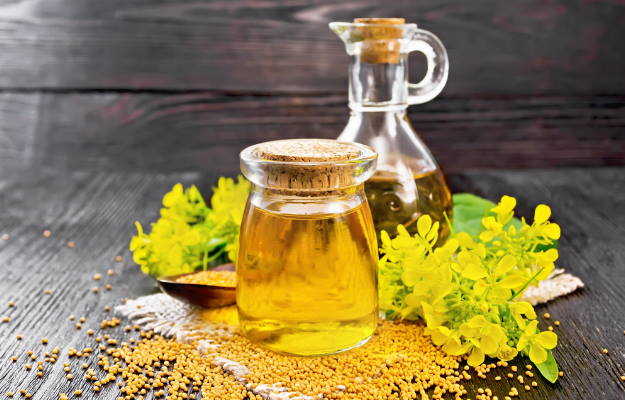There are some irreplaceable things in the Indian pantry which are not only used to cook some amazing regional delicacies, but their advantages are diverse and extend beyond the confines of the kitchen. One such classic example is Mustard Oil. Obtained from cold pressed mustard seeds, mustard oil has a distinct pungent aroma that takes a while to get used to. However, in the Eastern and North Eastern parts of India, it is hard to imagine a household that does not use mustard oil. In fact, this oil is now becoming quite popular, so much so that even the chefs in some of the finest restaurants have started to use it in their dishes.
Apart from being used in cooking, mustard oil is also used in salads, as a baby massage oil, hair oil, face and body oil. This oil is believed to have some extraordinary medicinal properties that are traditionally used to treat fungal infections, cure a cold, boost hair growth, build immunity, provide nourishment to the skin, strengthen bones, enhance oral health and so on. The list is endless.
Some basic facts about mustard oil:
- Common names: Sarson ka tel, mustard oil
- Sanskrit name: Sarshapataila
- Made from: Mustard seeds are cold pressed to extract mustard oil
- Geographical distribution: Mustard oil is used for cooking in Eastern India, North India, Bangladesh, and Nepal.
- Interesting fact: In India, mustard oil has a lot of cultural and traditional importance
In the Punjabi culture, the groom’s mother pours mustard oil on either side of the door as a sign of welcoming the bride.
It is used in earthen lamps or diyas and they are lit on festive occasions such as Deepavali
During the pre-wedding ceremony called maiyan, it is used as one of the main ingredients to make a paste to be applied to the individuals getting married.













